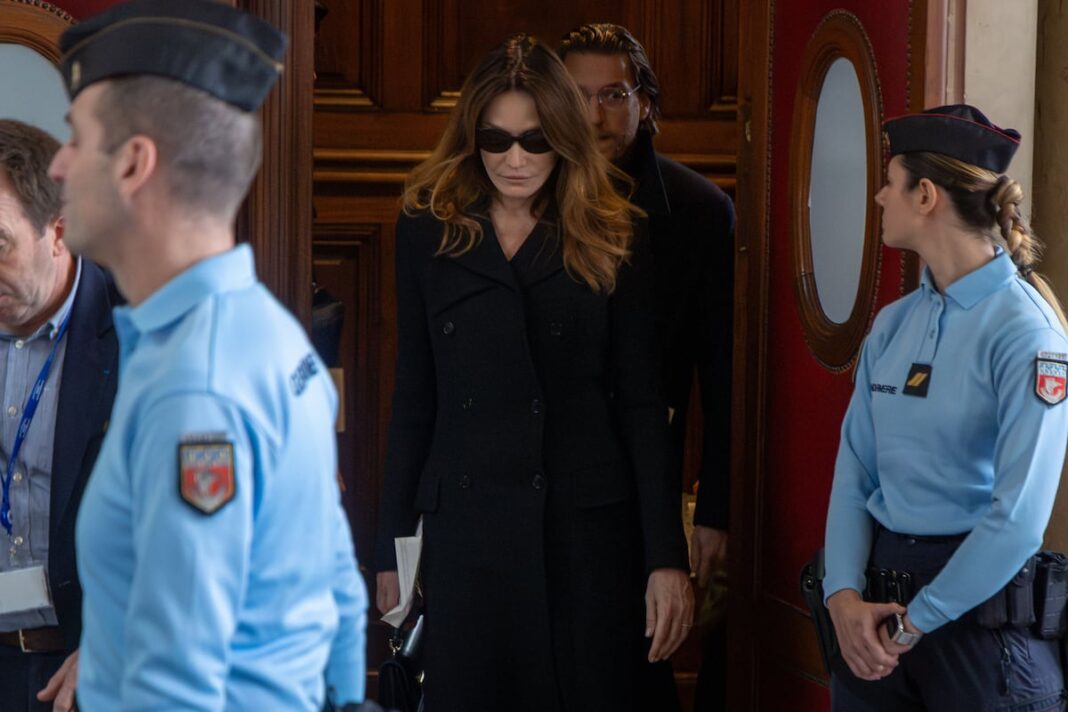The Complex Journey of Nicolas Sarkozy: A Former President’s Legal Battles and Imprisonment
Introduction to the Legal Storm
Former French President Nicolas Sarkozy has recently found himself at the center of a significant legal controversy. After being sentenced to five years in prison for receiving financial support from the Libyan regime during his 2007 presidential campaign, he has been embroiled in a series of court battles that have captivated the French public and political elite alike. This article delves into the details surrounding Sarkozy’s conviction, his time in prison, and the implications of his release.
The Conviction and Sentencing
On September 25, 2023, Sarkozy was found guilty of illegally receiving funds from the government of Muammar Gaddafi, the ousted Libyan leader. The Paris court concluded that between 2005 and 2007, Sarkozy, who held the role of Minister of the Interior at the time, acted alongside close associates to secure financial backing for his campaign. It’s essential to note, however, that while some funds were confirmed to have entered France, Sarkozy was acquitted of more severe charges like passive corruption, as evidence did not definitively link these funds to his presidential ambitions.
Imprisonment: A Unique Experience
Sarkozy’s imprisonment began on October 21, making him the first former head of state in France to serve a prison sentence. He was taken to La Santé prison in Paris, a facility notorious for overcrowding, designed for a capacity of 754 but often housing many more detainees. Despite being in a high-profile position, Sarkozy has reportedly been placed in a solitary confinement area, significantly different from the experience of typical inmates.
Upon entering the prison, Sarkozy reportedly faced threats from some inmates, prompting authorities to implement unprecedented security measures. These included constant accompaniment by two armed security officers, a decision that even sparked controversy within the prison system itself. The Minister of the Interior, Laurent Nuñez, justified these actions as necessary for protecting Sarkozy given the threats against him, yet they raised concerns about fairness and security protocols within the correctional facility.
Reaction and Support from the Political Sphere
During his time in prison, Sarkozy expressed his ordeal in a hearing held via videoconference, poignantly describing his experience as “hard, very hard,” and indicative of exhaustion that any detainee would experience. He thanked the prison officials who treated him humanely, suggesting an appreciation for their actions amid a challenging situation.
His appeal for release under judicial control was ultimately granted after three weeks of incarceration, allowing him to serve the remainder of his sentence outside of prison while awaiting the resolution of his appeal. His release was greeted with a mixture of shock and support from various sectors of the political landscape, with some former colleagues defending his position.
The Role of Political Figures
A notable episode occurred just prior to Sarkozy’s imprisonment when he visited President Emmanuel Macron at the Elysee Palace. This meeting raised eyebrows, as many viewed it as an attempt to bolster political relationships in light of his impending incarceration.
Moreover, Minister of Justice Gérald Darmanin’s visit to Sarkozy in prison added another layer of complexity to the situation, with the minister explaining that ensuring Sarkozy’s safety was part of his responsibility. This move, however, sparked criticism about the message it sent regarding the treatment of prisoners, especially compared to the broader prison population.
Ongoing Legal Challenges
The case involving Sarkozy does not exist in a vacuum; he has been involved in multiple legal proceedings over the last several years. This mark represents the fifth trial he has faced in recent times. Last December, he received a three-year sentence for corruption related to what is colloquially referred to as the “eavesdropping case,” involving accusations of influence peddling in exchange for favors in another investigation.
While his previous sentence allowed for a reduced time served under house arrest—thanks to being placed under electronic monitoring—this latest legal battle casts a long shadow over Sarkozy’s political legacy and future prospects in French politics.
Conclusion: A Legal Saga Unfolding
As Sarkozy’s legal saga continues, it brings to the forefront questions about justice, political power, and the treatment of public figures within the legal system. His case serves as a poignant reminder of the complexities interwoven within the justice system, especially when political figures are involved. Observers will be watching closely as he navigates this unstable terrain, eagerly anticipating the outcomes of his ongoing appeals and trials.



